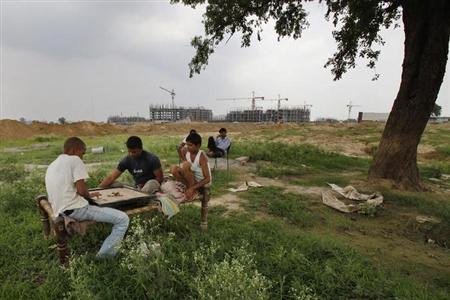 The National Democratic Alliance has taken the ordinance route to deal with the pressing need for legislation in key sectors of the economy and questions are likely to be asked why such a route had to be followed.
The National Democratic Alliance has taken the ordinance route to deal with the pressing need for legislation in key sectors of the economy and questions are likely to be asked why such a route had to be followed.
However, the laws themselves should be seen in isolation, separate from the act of using an ordinance, and evaluated.
And by that yardstick, the ordinance amending the Right to Fair Compensation and Transparency in Land Acquisition, Rehabilitation and Resettlement Act, or the land Act, is worthy of praise.
The full details are not yet out, and there may be surprises in the fine print.
But based on what has been put in the public domain so far, there is much to be pleased about.
Several big projects - in particular, those involving rural infrastructure and affordable housing, industrial corridors and most importantly many public-private projects (PPP) in infrastructure - will get a boost, and compressed time frames.
This is because the new ordinance permits the government to skip some stages - for example, the social impact assessment.
The fear was that such assessments could slow down the project too much.
By some estimates, the land Act increased the time for acquisition to almost five years.
That may be an exaggeration - but there were clearly too many delaying stages of evaluation even for projects of clear national importance.
PPP watchers will also be pleased that the requirement to have the consent of 70 per cent of those whose land is being forcibly acquired has been waived for the categories of projects covered by the ordinance.
Still, there are some other questions.
Existing exemptions from the land Act were granted to projects covered by 13 other Central laws, including those governing highways, metro rail and a few power projects.
Several infrastructure projects that were not earlier covered by the land Act will, thus, now be covered by it - albeit under the amended, speedier timetable.
Seen this way, there may be little additional for those involved in such projects. Losers of land for such projects will gain as they will come under the purview of the enhanced compensation package mandated under the land Act.
But the end to consent will be the most politically controversial aspect of the changes; it remains to be seen what the attitude of Parliament will be to this.
It may be the case that this merely alters the land Act mandating 70 per cent all over India, and opens the door to state-set levels of consent.
Consent from land losers is then not being ended; only a centrally mandated proportion is.
Even if the full impact is yet to be understood, it is clear that the government has signalled its unwillingness to let a recalcitrant Opposition have things all its own way.
This is one of several ordinances that the government has passed. Ordinances are supposed to be used when there is a matter of urgency, not as the usual method of legislation.
In the case of the land Act, at least, urgency can be claimed - reviving India's investment cycle cannot wait much longer.
The government must now begin the hard political spadework of building support for the amendment in Parliament.
In its official release on the subject, it has indicated that the changes are a win-win, and will help land losers in all respects, as well as aid the process of development.
If this is so, then it must make the case politically, too.
But the overriding message is that the government understands the importance of reviving the investment climate in the country, and that more transparent and better land acquisition is key to that.









